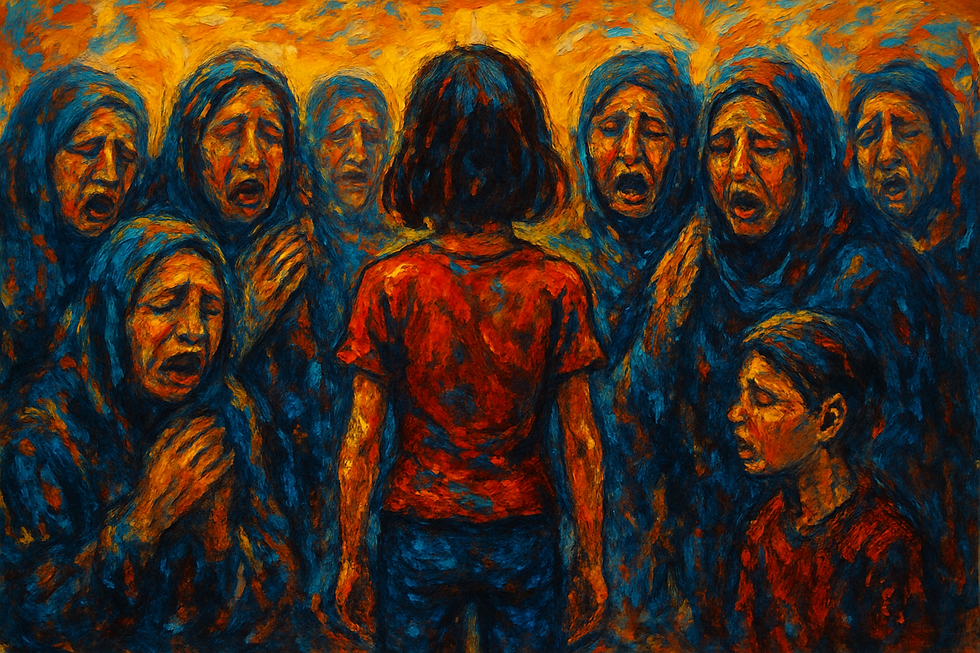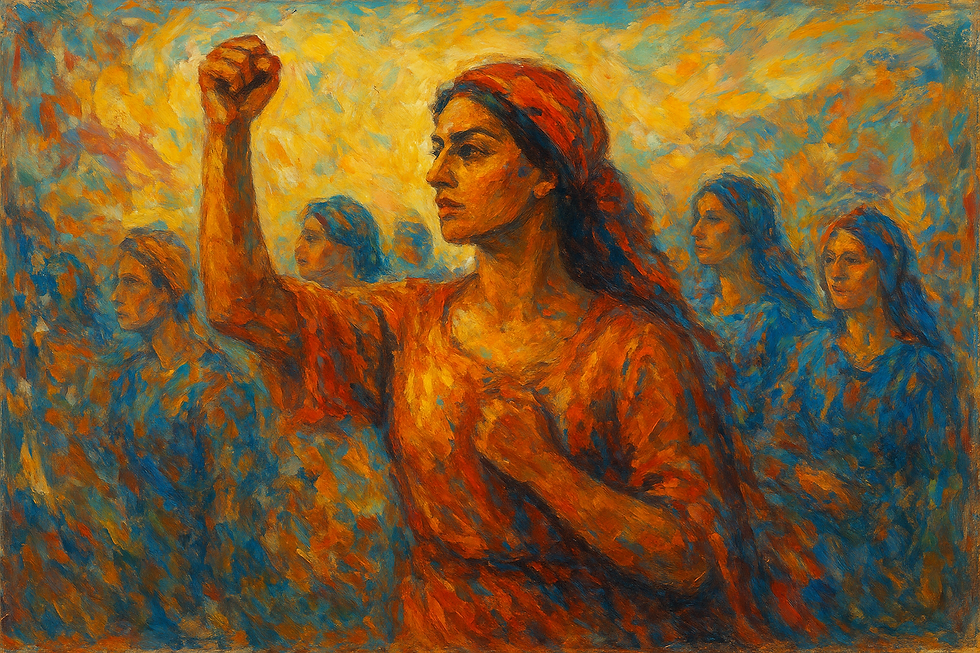The Stolen Memory: A Present Erased from Our Books
- Heba Omran Tawalbeh

- Sep 29, 2025
- 4 min read
By Heba Omran Tawalbeh

We search for the soul of history, yet the present has no place in our books. Why are the events we witnessed with our own eyes erased from curricula, even though they shaped the consciousness of our peoples and altered the course of the Arab world?
Why is the Arab Spring absent, the squares filled with chants for freedom, the people who paid with their blood for dignity? Why do we not teach the story of Gaza, writing a new epic every day, or Syria, torn apart by the fangs of Bashar al-Assad’s regime?
The absence of contemporary history in our curricula is not a pedagogical oversight, it is a strategic error that undermines the identity of future generations. When the present is not documented, students’ awareness becomes hostage to social media platforms, where truth is blurred by propaganda, and memory distorted by manipulation.
Education does not only protect against ignorance; it protects against the loss of narrative. If we do not write our own story, others will write it for us, shaped by their interests, and the blood of our sacrifices will be lost between their lines.
Recent history is not just a list of events, it is a living classroom where values are sown and critical consciousness is built. How can a young person grasp the meaning of freedom without knowing its price? How can they value dignity without seeing the stories of those who faced bullets with bare chests? Writing the present is not an intellectual luxury but a school of patriotism and resistance, more vital than any lesson from the distant past.
From Tunisia to Egypt, from Libya to Yemen, people poured into the streets demanding dignity. It was an extraordinary moment that broke the wall of silence and declared that the people are alive. Ben Ali fell in Tunisia, millions filled Egypt’s squares, while Libya and Yemen sank into the fires of war. Yet these moments never entered our textbooks. How can we raise a generation that does not know their recent ancestors dreamed of freedom and stood unarmed against tanks?
And Syria was not a passing headline but a prolonged tragedy, a wound carved into the body of the Arab world. Millions killed and displaced, cities reduced to rubble, children searching for shelter. And yet Syrians kept trying to rise, to rebuild what was destroyed, to dream of freedom again. Is that not a lesson in resilience worthy of being documented?
As for Gaza, it is a book of endurance written in flesh and stone. Every house destroyed and rebuilt, every child pulled from beneath the rubble with a smile, is testimony that dignity cannot be defeated. Gaza is not just a besieged city but a living school of history. And yet, we leave it undocumented, as though it were a forgotten chapter in the book of humanity.
To ignore these realities is not simply to erase them from paper, it is to erase them from collective memory. Nations that do not write their present leave their children without a compass, wandering in the narratives of others. By excluding our present from the curriculum, we do not shield students from politics; we expose them to ignorance, denial, and distortion.
Curricula are not meant only to preserve the reigns of kings and lists of battles but to shape citizens capable of thinking critically. Teaching the present gives students the tools to understand the world, to link past to present, to realize that freedom and dignity are not hollow slogans but lived experiences paid for with blood and tears.
Contemporary history is the mirror of peoples. Erasing it from our books is erasing our memory with our own hands. Honoring the present is no less important than preserving the past, for it ensures that the consciousness of a nation remains alive, and that its people remain rooted in their truth, not in the narratives others write about them.
To teach these moments is not merely to pass on knowledge; it is to give future generations a weapon against forgetting and tyranny. To know that freedom is not a gift but a right, that dignity is not bought but seized, this is the great value that shapes human beings capable of defending their homeland. Embedding the present into curricula means giving our children a solid identity, protecting them from false narratives, and enabling them to resist all attempts to erase the truth.
The coming generations deserve to read about sacrifices in their textbooks, not hear them as scattered anecdotes in cafés or fragmented tales on the internet. They deserve to own their memory, not to see it wielded as a tool by others. Writing the present is not optional, it is a historical responsibility we all share.
Heba Omran Tawalbeh is a Jordanian writer and storyteller, known for her contributions in creative and political writing, and the recipient of several Arab literary awards.
The opinions expressed in this article are solely the author’s and do not represent the views of Nisaba Media.





Comments